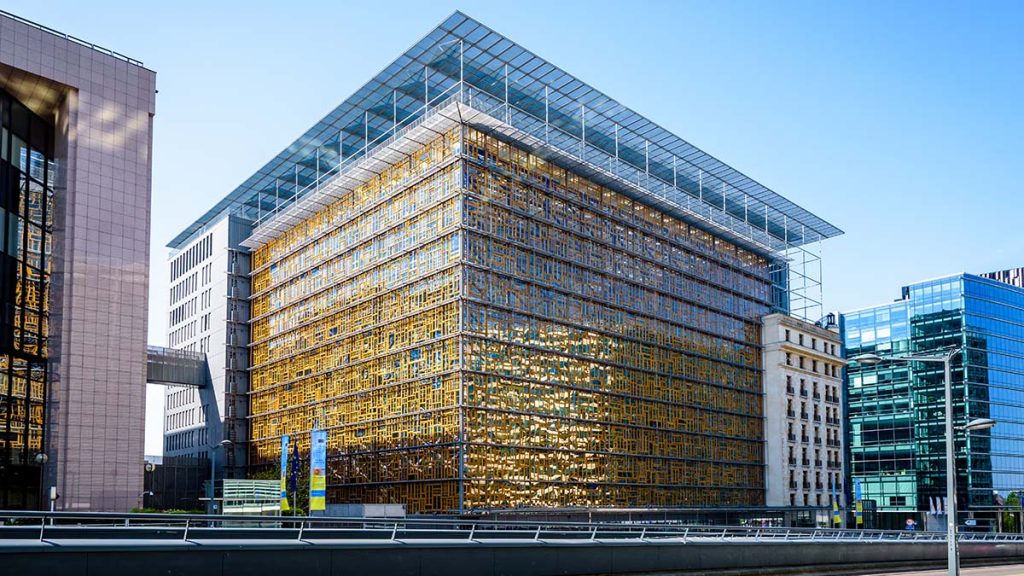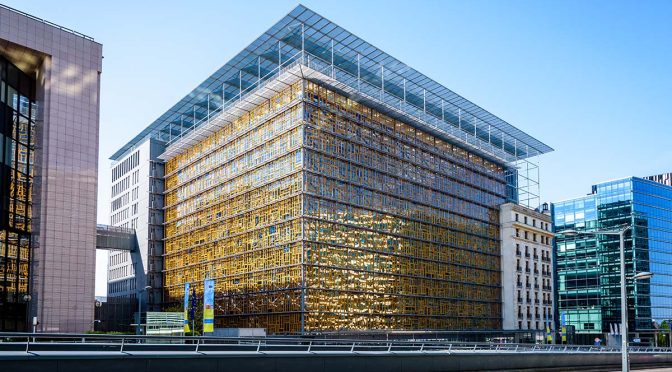Today the EU Member States agreed on their position for the upcoming negotiations with the European Parliament on the Net Zero Industry Act. The European Parliament adopted its own position in November. The Council and Parliament diverge on critical points as they head the final negotiations to be finalised by the end of Q1 2024. It is imperative that NZIA ultimately sets clear, EU-harmonised, technology-specific, and immediately applicable changes to wind energy auction design. Only then will they help to expand the European wind energy supply chain to meet Europe’s energy security and climate objectives.
The EU needs to build around 30 GW of new wind turbines each year between today and 2030 to deliver on its climate and energy security objectives. The EU’s world-class wind supply chain will need to remain resilient, and to expand to deliver that.
To this end the EU Commission presented the Net Zero Industry Act (NZIA) earlier this year. NZIA is the EU’s attempt to strengthen and scale-up European clean tech manufacturing. As EU Commission President von der Leyen said in her State of the Union Speech: “the future of our clean tech industry has to be made in Europe.”
Europe needs clear pre-qualification and non-price award criteria for its wind auctions
The Council’s position adopted today endorses the principle of pre-qualification criteria in renewable energy auctions which is a step in the right direction. Pre-qualification criteria are essential to raise the bar and ensure the technology installed in Europe meets minimum requirements e.g. on cybersecurity.
But the Council’s position leaves the possibility open of having 27 different sets of pre-qualification criteria which would be an administrative nightmare for market players and would lead to unnecessary costs.
Crucially, the Council’s position includes a very long phase-in period for pre-qualification and non-price award criteria. They would only apply to 20% of the auction volume until 2029, thereby cementing a two-tier market. One market where projects need to meet minimum requirements reflecting the added value of the European wind supply chain, and one where the cheapest project wins, prolonging the race to the bottom that has badly hurt the European wind industry.

“Getting auction design right will make or break the Net Zero Industry Act. It’s the only thing that matters, really. When it comes to wind, Europe needs to agree a limited set of pre-qualification and non-price award criteria that apply from the start. That must include a clear criterion on supply chain resilience reflecting the value of ‘made in Europe’. Failing to do that would only prolong the status quo: race to the bottom auctions which hurt the wind supply chain. And our ability to meet our climate and energy security objectives”, says Pierre Tardieu, Chief Policy Officer at WindEurope.
Trialogues on NZIA will start this month and go into Q1 2024. To have a positive effect on the European wind energy supply chain, qualitative criteria in the final deal must follow 5 principles:
- They must be simple and easily applicable. The EU should especially max out on mandatory prequalification criteria for onshore and offshore wind auctions. This includes readily deployable rules for cybersecurity and data residency which will guarantee that Europe’s critical energy and grid infrastructure cannot be an easy target for cyberattacks.
- They must be technologic-specific. Today almost all wind turbines installed in Europe are made in Europe. The EU has a strong domestic wind supply chain. This is not the case for all renewable technologies. The EU must take these fundamentally different starting conditions into account. Pre-qualification and non-price award criteria should therefore be technology-specific.
- They must apply uniformly at EU level. The EU must adopt a harmonised approach to pre-qualification and non-price award criteria. It must avoid a patchwork of national auction rules.
- They must apply right from the start. Prequalification criteria and, where relevant, non-price criteria should immediately apply to all wind energy auctions. The EU should not opt for a “phased-in approach” in which only 20% of auction volumes apply these criteria and the rest doesn’t. Phasing-in may make sense for other technologies but it’s not the right approach for wind energy.
- The supply chain resilience criterion must be fit for purpose. Having the right approach to supply chain resilience in renewable energy auctions is at the core of the Net Zero Industry Act. Supply chain resilience criteria must apply to all wind auctions from the start. And they must recognise the contribution of the whole European supply chain, including the UK, Norway and Turkey.
Getting the auction criteria wrong would create unnecessary complexity for project developers, delay orders along the whole supply chain and ultimately slow down the urgently needed deployment of wind energy.


